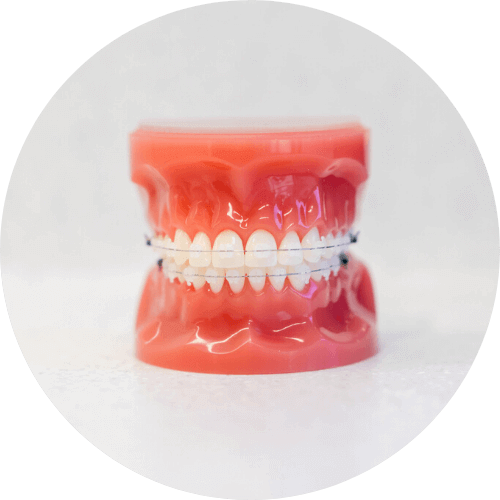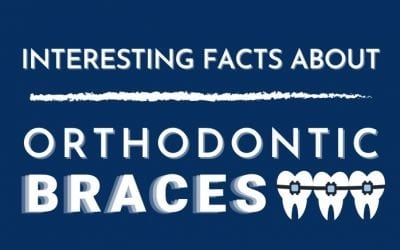Spreading the Cost: Braces Payment Plans in Australia
Getting orthodontic work for you or your kids can be a costly exercise – but a necessary one in order to gain the smile you’ve always wanted and boost your confidence!
Thankfully, there are many ways to go about financing these kinds of changes so that money issues don’t become an obstacle to you achieving a perfect smile.
Below are some answers to the questions we often get about financing your treatment, such as “do braces have payment plans” – and examples of the kinds of options that many orthodontists in Australia may be able to offer to help you manage the cost of your investment.
Do you have to pay for braces upfront?
The short answer is no. Most orthodontists in Australia will offer flexible payment plans as part of their services. These often work in different ways depending on your practitioner and your individual financial situation. In many cases, financial payments may be able to be negotiated with your orthodontist’s practice.
If you do choose to pay in full at the beginning, some orthodontists might offer an upfront discount. But opting for a payment plan means that you can get started with your braces or clear aligner treatment now and address the bill a bit later on. It’s a great way to manage your cashflow while still getting the specialist support you or your family needs.
Below are some of the types of payment plans offered by orthodontists in Australia:

Orthodontist payment plans in Australia
There is no one set system across the country, and individual orthodontists will likely have their own set of financing options. Most finance plans, however, are generally interest-free.
Most commonly, your orthodontist will divide the overall cost of your treatment into regular instalments or direct debits across longer periods of time. Many payment plans are timed to be in sync with your appointments, which are generally every 6 – 8 weeks. Others may be spread across monthly or fortnightly payments.
Whatever schedule you choose, you can rest assured that your specialist orthodontist will provide a comprehensive and all-inclusive quote up front, (i.e. including all appointments and appliances), so that you know exactly what you’re up for.
Third-party payment services
For certain treatments, some specialist orthodontists may also offer payment via Buy Now, Pay Later (BNPL) services. These services work by spreading out the cost of your treatment over a few weeks or months via an easy online platform.
BNPL providers often take the administration out of payment plans, and make the process easier, but these services can also sometimes include credit checks or third-party fees, so it’s worth weighing up the pros and cons of making a direct plan with your specialist.

There is also the option of taking out health insurance
Many health insurers offer extras policies that cover a range of orthodontic treatments, and families can often save quite a bit of money this way.
However, most private healthcare agreements typically have a waiting period of 12 months or more for orthodontic care, so this would only be an option if you’re planning for treatment well in advance. For example, if your kids are young and you’re looking to find a family orthodontist who will see them through a series of treatments over the course of their childhood, adding orthodontics to your insurance policy now might be benefit you in the future.
Most people only opt for a healthcare plan if it also serves them in other areas of their life, as the monthly premiums can add up to more than the ultimate cost of your treatment. It’s important to talk to your insurer to understand your options first, and how much the rebate is likely to be.
Remember to understand your obligations
Although there is often no credit check involved in an orthodontist’s payment plan, you still have a legal responsibility (i.e. often involving a financial contract) to meet your repayments and stick to the schedule as previously agreed. Like any loan or credit situation, missing a payment or paying your instalments after the due date might incur a late fee, or a delay in your treatment.
Consider putting down a deposit
Many orthodontists are able to offer a combination of upfront payment and an ongoing payment plan. Like a house deposit, this means that while you might have to put down a larger figure before commencing treatment, your instalments will be lower or there will be less of them in the future.
Interested in finding out more?
Every orthodontist will have a different set of payment options best suited to your treatment and needs. Always start by getting in touch with your local orthodontist using our finder. They’ll be happy to give personalised advice and explain their available plans.
All payment plans mentioned are indicative only, and will depend on the type of treatment being undertaken and the practitioner’s individual offering. Orthodontics Australia recommends you consult a specialist orthodontist before commencing any form of orthodontic treatment. You can request a detailed quote from your orthodontist to understand the full cost of treatment, including regular monitoring appointments to ensure your treatment is progressing safely and as expected.
To read the original article, click here.
DISCLAIMER:
The content has been made available for informational and educational purposes only. Central Coast Orthodontics does not make any representation or warranties with respect to the accuracy, applicability, fitness, or completeness of the content.
The content is not intended to be a substitute for professional personal diagnosis or treatment. Always seek the advice of your dentist or another qualified health provider with any questions you may have regarding a dental or medical condition. Never disregard professional advice or delay seeking it because of something you have read or seen on the Site.
Learn More About
Related Articles
Interesting Facts About Orthodontic Braces
Wanting to get orthodontic braces but feeling unsure because you don't have knowledge about its...
Three Benefits of Invisalign
Did you know that aside from being an option for straightening your teeth, there are also benefits...
Metal Braces: Does This Traditional Dental Technology Have a Future?
Of all the medical professions, dentistry has always generated the most fear and continues to;...
Ceramic Braces: Ancient Origins, Bright Future?
What exactly is ceramic? Essential to daily life and classified as inorganic and non-metallic...







